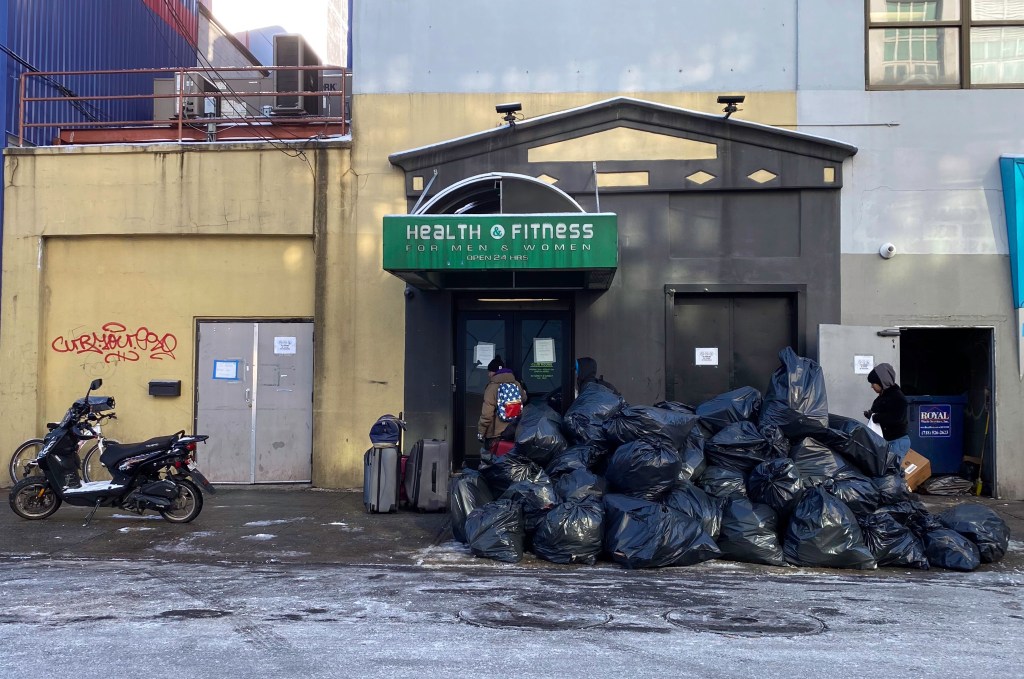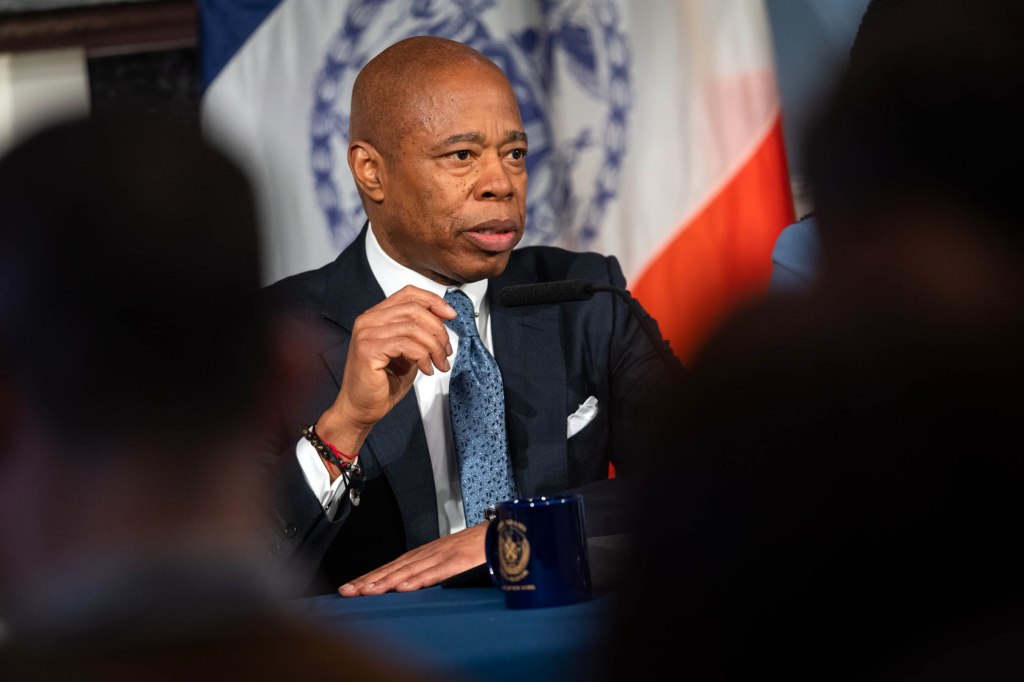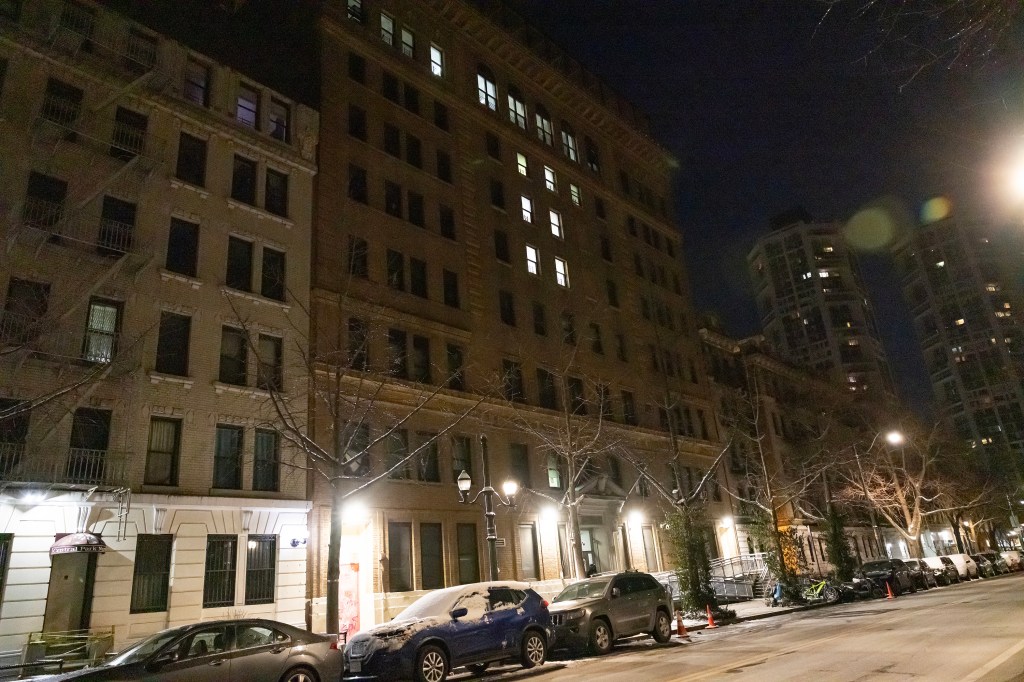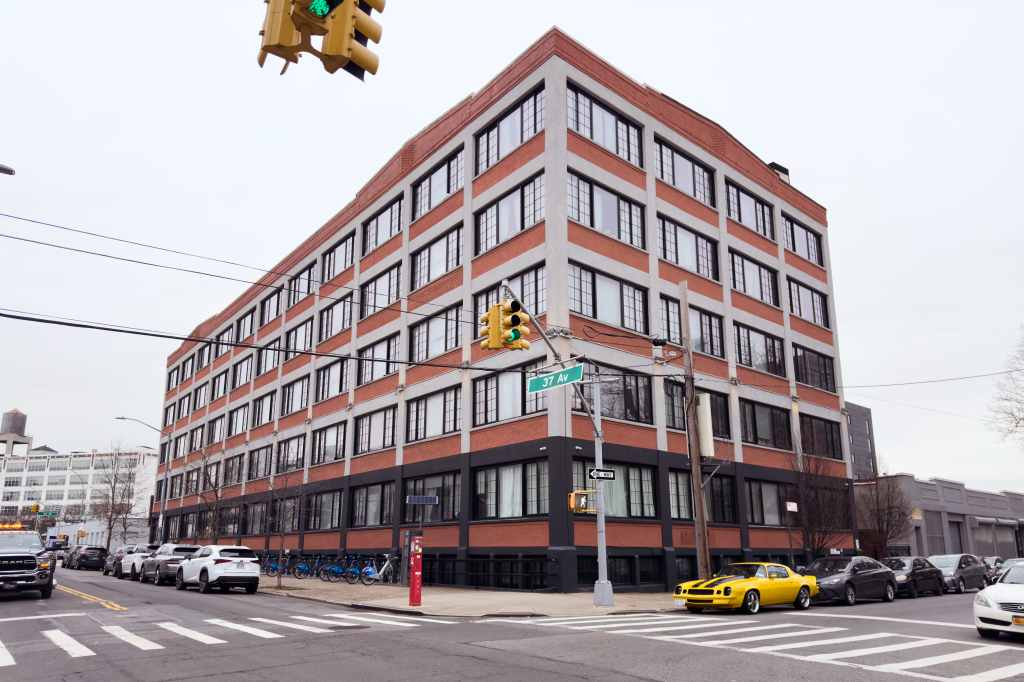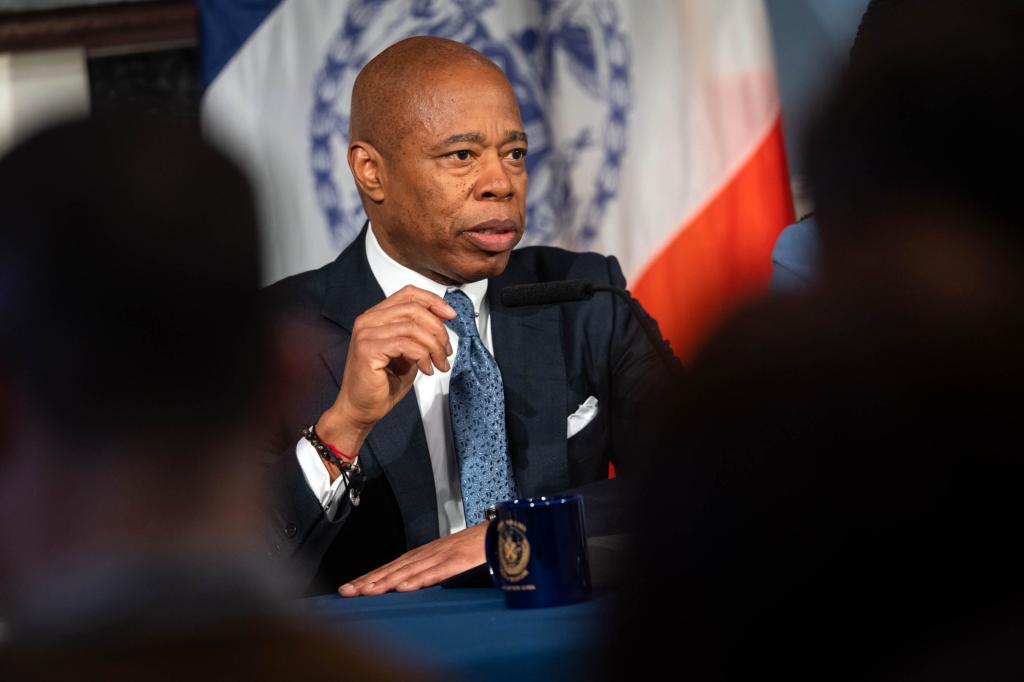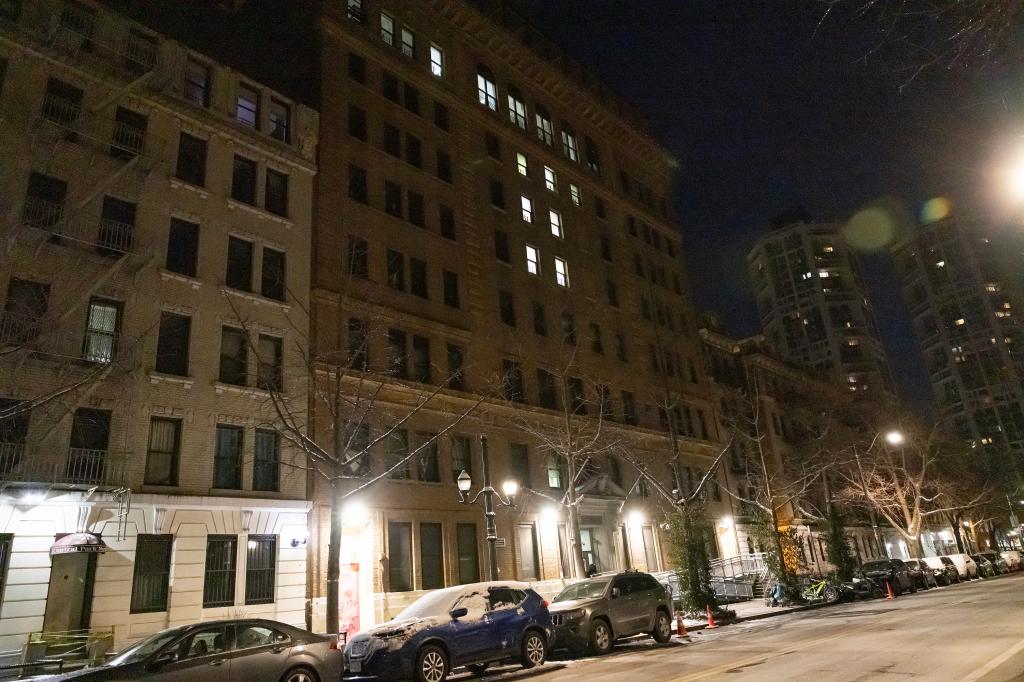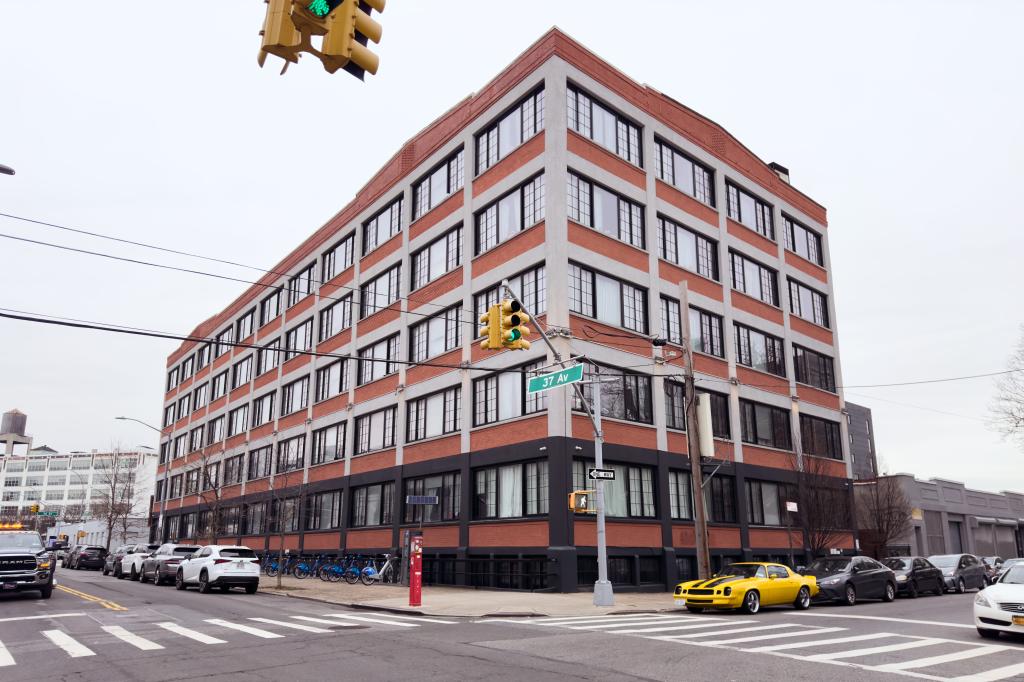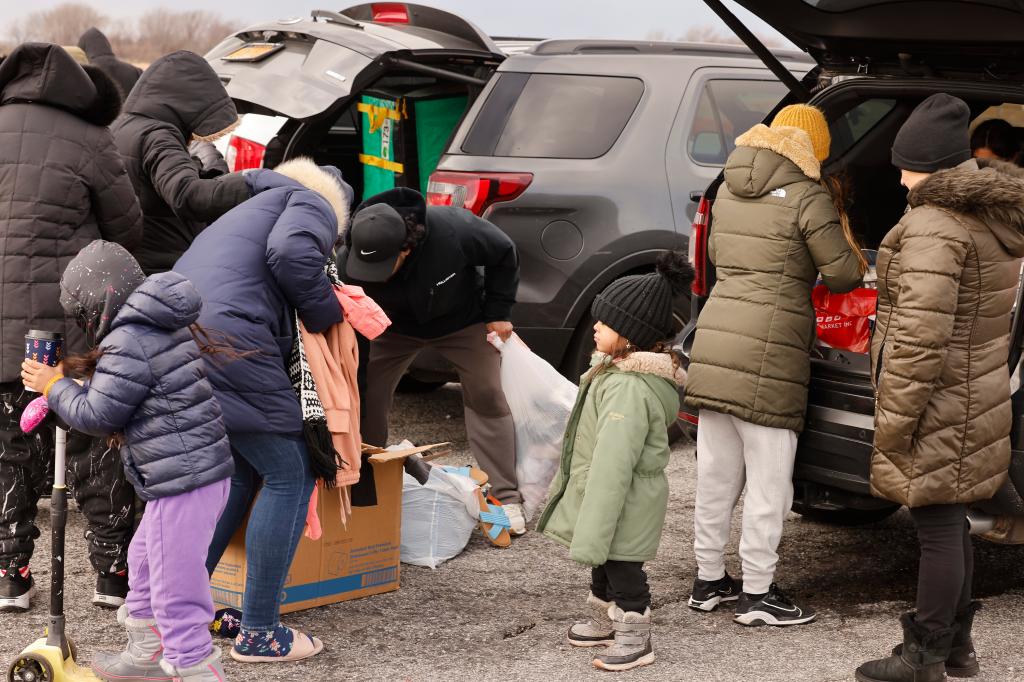NYC likely to extend migrant curfew — but locals still feel unsafe: ‘They don’t want to be controlled’
Contact The Author
Mayor Eric Adams says he wants to extend a newly imposed curfew at four migrant facilities to other sites in the Big Apple — although New Yorkers remain lukewarm.
The skepticism from locals on Wednesday comes after the first night of the 11 p.m. to 6 a.m. curfew put in place by Adams at four migrant respite centers in the wake of complaints that asylum seekers are panhandling and being a nuisance in the neighborhoods.
“We want to really stabilize the areas around the shelters as well as give clear directions on what’s expected if you are in one of our shelters,” Adams said on PIX11 Morning News.
“And that is part of this reality that we’re facing,” he told the outlet. “We believe this problem is going to be here for a while, and so we want to make sure that we do not destabilize communities or harm communities or create the right environment for those who are trying to take the next step in their journey.”
In a separate interview on 1010 WINS radio Wednesday, Adams said extending the curfew to other sites could “bring a level of normalcy to this problem that we’re facing.
“It’s not going away anytime soon. And so we want to give clarity to all the residents that are there.”
But neighbors say they’re not entirely sold on the idea that a curfew is the answer.
“They don’t want to be controlled. They want to do what they want to do,” Elena Russo, 83, who lives near one facility in Astoria, told The Post Wednesday.
“We are not safe with this group of people. Now that there’s a curfew, will it be enforced?” she said. “We need a police officer there 24 hours!”
Cheryl Moore, who lives near another respite center in Harlem, said she can only hope that the curfew makes a difference in her neighborhood, but says it’s only a start.
“People in dire straits are inclined to resort to criminal measures to get what they need to survive, and that’s what I think is happening here,” said Moore, 68. “The city can provide these people with the basic necessities, but if they need more, and can’t get the jobs to get more.
“It’s inevitable that some will resort to violent means,” she said. “I think a curfew is a good first step because there needs to be some regulation over people who were never regulated to begin with.”
The migrant curfews went into effect Tuesday at four respite centers — the Judo Center on 35th Avenue and the JFK Center on North Boundary Road in Queens, the Stockton Center on Stockton Street in Brooklyn, and the Lincoln Manhattan Center on Central Park North in Manhattan.
It requires migrants housed at the centers — where migrants are housed while waiting for placement in longer-term shelters— to check in by 11 p.m. and remain inside until 6 a.m.
Exceptions can be made in advance for work, school, or legal and medical appointments, but migrants who otherwise break the rules three times within 30 days can get kicked out.
The move was spurred by mounting complaints from locals that migrants were knocking on doors in the neighborhoods begging for money or food, or otherwise causing disturbances.
Similar complaints have come from communities with full-fledged migrant shelters, including around a massive tent facility at a former federal airfield at Floyd Bennett Field in Brooklyn.
City Hall has not provided specifics on when — and where — curfews may be imposed.
More than 165,000 migrants from the US border have arrived in New York City since the spring of 2022, with nearly 70,000 still in local shelters and hotels — stretching the city’s shelter system beyond the breaking point and creating friction with everyday New Yorkers.
But not everyone is convinced that’s a good idea — nor a necessary measure.
“I have not heard about an uptick in crime in our neighborhood, and it seems like these people have a hard enough time as it is,” said 30-year-old Astoria resident Katelyn Ahlades. “I don’t know if it’s necessarily ethical to instate a curfew for them.
“I think they’re going through something that’s unfathomably difficult, and yes, of course, that makes people desperate to do things that they wouldn’t otherwise do,” she said. “But instituting more restrictions, I don’t think is the right answer.”
